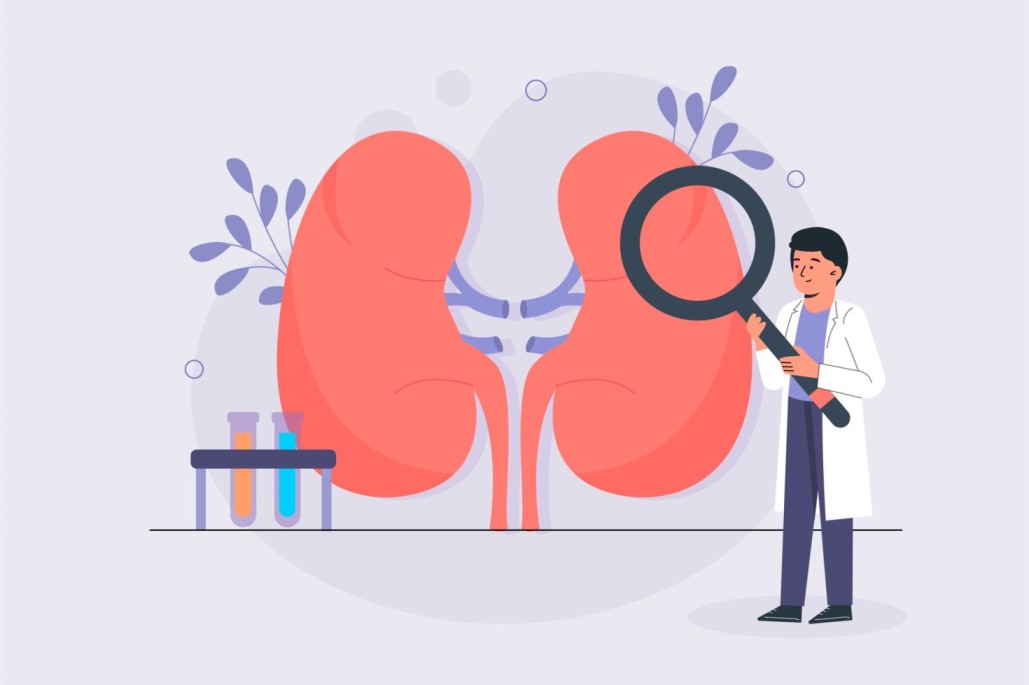


The Kidney Function Test (KFT) evaluates how well your kidneys are working by checking key blood parameters like creatinine, BUN, and electrolytes.
Maintaining kidney health is essential for overall well-being, as the kidneys play a vital role in filtering waste, balancing fluids, and managing critical minerals in the body. When these organs do not function properly, toxins can build up, leading to severe health complications. That’s why healthcare professionals often recommend a Kidney Function Test (KFT) to evaluate how well the kidneys are performing. Let’s discuss the KFT blood test price, which varies based on several factors such as location, diagnostic centre, and type of tests included in the panel. The Kidney Function Test (KFT) is an essential diagnostic tool that helps assess how well your kidneys are working by measuring waste levels and key blood parameters. Understanding the KFT blood test price enables you to plan your health checkups efficiently, as costs can vary based on location, lab type, and additional services. Regular KFT testing ensures early detection of kidney issues, helping you maintain optimal health and prevent long-term complications.
A KFT (Kidney Function Test) is a group of blood tests that assess how effectively your kidneys are filtering and removing waste from your bloodstream. This test is often recommended if you experience symptoms like swelling in the feet or face, fatigue, changes in urination, or if you have conditions such as diabetes, hypertension, or heart disease.
The KFT helps detect early signs of kidney dysfunction before it leads to chronic kidney disease (CKD) or kidney failure. Doctors also use it to monitor the effects of medications or treatments that may impact kidney function.
The kidneys regulate key body functions — including maintaining fluid balance, removing waste, and controlling blood pressure. When kidney function declines, it can cause dangerous imbalances that affect multiple organs.
A KFT helps:
Regular monitoring through a KFT is especially crucial for individuals with chronic illnesses, older adults, or those with a family history of kidney disease.
A KFT usually includes several parameters that together provide a comprehensive picture of kidney health:
Each of these components contributes valuable information that helps doctors assess kidney performance accurately.
The KFT is a simple and safe procedure requiring a small blood sample.
Steps involved:
Preparation:
The KFT blood test price can vary depending on several factors, including:
In India, the cost of a KFT test typically ranges between ₹700 and ₹1000. Prices can also vary based on whether you choose individual tests or a comprehensive health package. It is advisable to compare options and check for ongoing discounts before booking your test.
Doctors may recommend a KFT blood test if you experience symptoms such as:
Additionally, individuals with diabetes, high blood pressure, or a family history of kidney disease should undergo routine KFT screenings every 6–12 months. Early detection helps prevent the progression of kidney-related issues.
Normal Ranges (Approximate):
If your results fall outside these ranges, your doctor may suggest further tests such as urine analysis, ultrasound, or more advanced kidney assessments to identify underlying causes.
Healthy lifestyle habits can support kidney health and reduce the need for frequent medical interventions:
By maintaining these habits, you can reduce the risk of kidney-related diseases and ensure long-term wellness.
The KFT blood test price may vary based on location, laboratory standards, and additional services, but it remains a crucial diagnostic tool for maintaining kidney health. Regular testing ensures early detection of potential kidney issues and helps guide appropriate medical care. Prioritising timely checkups and a balanced lifestyle can help keep your kidneys functioning efficiently and your body in optimal health.
